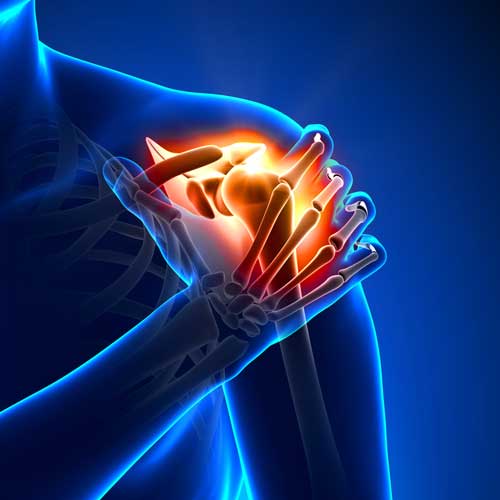A rotator cuff is commonly known as a group of muscles and tendons surrounding the shoulder joint. The rotator cuff muscles and tendons attach the shoulder blade to the upper arm bone. The rotator cuff muscles and tendons help lift the arm. The rotator cuff also stabilizes the shoulder joint.

A rotator cuff injury occurs when the rotator cuff muscles and tendons are damaged. Rotator cuff injuries can occur suddenly, such as from a fall, or slowly over time from repeated shoulder movements.
A rotator cuff injury occurs when the rotator cuff muscles and tendons are damaged. Rotator cuff injuries can occur suddenly, such as from a fall, or slowly over time from repeated shoulder movements.
Symptoms of a Rotator Cuff Injury Include:
- Shoulder pain, often worse at night.
- Weakness in the arm and shoulder.
- Difficulty moving the arm.
- A creaking or grating sound when moving the arm.
If you have any questions about these symptoms, you should see a doctor. The doctor will ask about your symptoms and medical history. They will also do a physical exam. This may include tests such as X-rays, MRI, and ultrasound.
Rotator Cuff Treatment Options
There are multiple rotator cuff injury treatment options. The mode of treating this problem will depend on the severity of the injury. Depending on your injury levels and personal preferences, here are some standard treatment options that you can consider:
Rotator Cuff Surgery
A rotator cuff injury that doesn’t respond to conservative treatment may require surgery. Surgery can be done to repair the damaged tendon or muscle. The surgical expert may need to remove the damaged tissue in some cases. However, this is usually only done as a last resort.
Rotator Cuff Physical Therapy
After the acute pain and swelling from a rotator cuff injury have gone down, physical therapy can help improve range of motion and strength. A physical therapist can show you exercises to help stretch and strengthen the muscles and tendons around the shoulder.
Rotator Cuff Anti-inflammatory Medication
Anti-inflammatory medication, such as ibuprofen, can help reduce pain and inflammation from a rotator cuff injury. You can always try other options, such as corticosteroid injections, to help control pain and inflammation.
Rotator Cuff Corticosteroid Injections
A corticosteroid injection can help reduce pain and inflammation from a rotator cuff injury. Injections have become a less common treatment option due to the risk of side effects. However, they may be recommended in some cases. Besides corticosteroid injection, other types of injections, such as platelet-rich plasma (PRP) injection, are being studied as potential treatment options for rotator cuff injuries.
Conclusion
Rotator cuff injuries can cause pain and weakness in the shoulder. Treatment options vary depending on the severity of the injury but may include physical therapy, anti-inflammatory medication, or surgery. If you have any symptoms of a rotator cuff injury, you should see a doctor. Contact Bernard Ong, M.D., for rotator cuff treatment options in Las Vegas, NV.
